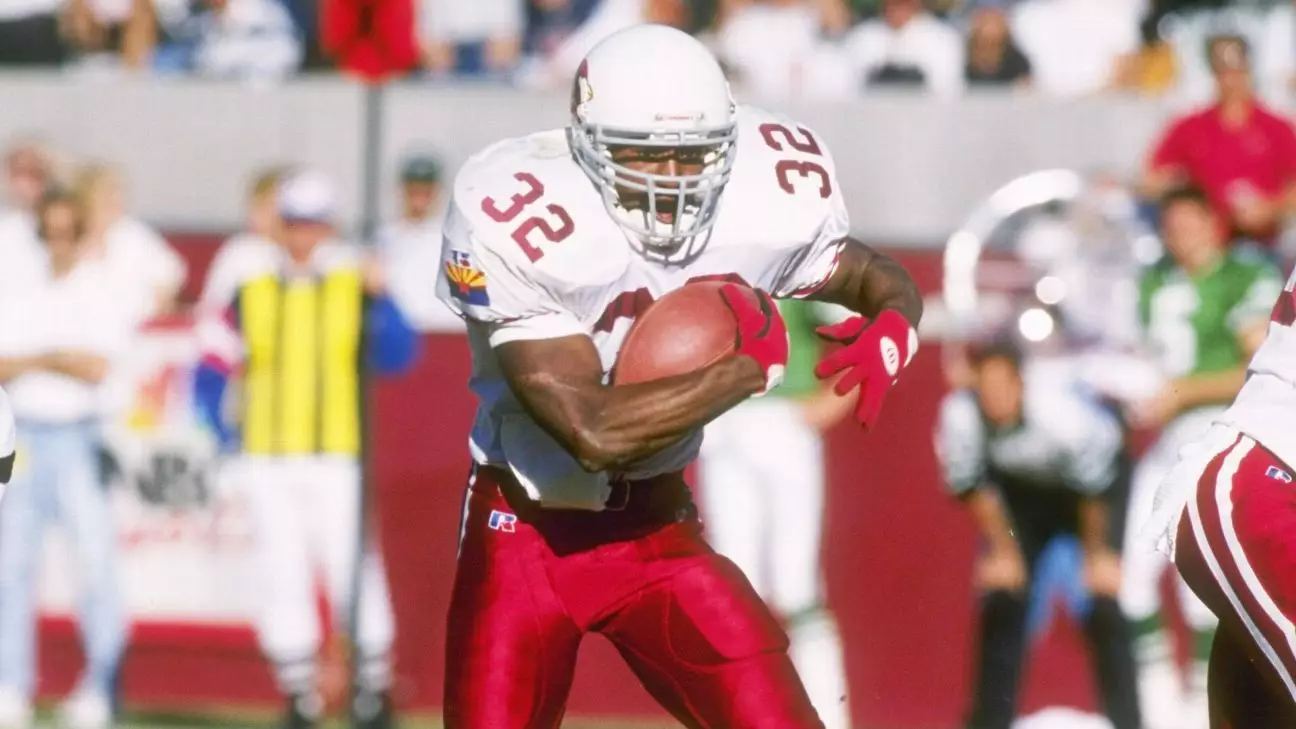In a chilling revelation that bridges the worlds of sports and animal rights, former NFL running back LeShon Johnson finds himself at the center of a harrowing dogfighting scandal. The recent indictment against him by the U.S. Department of Justice, with 21 counts under the federal Animal Welfare Act, underscores a pressing societal issue that transcends the boundaries of pet ownership and professional sports. The allegations include possessing 190 pit bull-type dogs specifically for an animal fighting enterprise—an abhorrent practice that reveals a disturbing underbelly of human depravity.
The Numbers Don’t Lie: A Disturbing Trend
The sheer scale of this case is staggering; it is reportedly the largest number of dogs seized from a single individual in a federal case. October’s seizure of these 190 animals not only spotlighted Johnson’s actions but also raised broader questions about the effectiveness of current laws addressing animal cruelty and the alarming normalization of violence against animals in some segments of society. While many admire athletes for their physical prowess, such as with Johnson’s NFL career—where, despite his undeniable talent on the field, his off-field actions paint a much different, more troubling picture.
The Cycle of Abuse: A Deceptive Nature
Animal fighting is often a covert activity, shrouded in secrecy and societal stigma. It thrives in the dark corners of our communities, frequently going unnoticed until catastrophic events reveal its existence. Johnson, a player who once enjoyed a celebrated career with teams like the Green Bay Packers, is now emblematic of the cyclical horror that surrounds animal abuse. His own history of pleading guilty to state animal fighting charges in 2004 showcases a trajectory of misconduct that raises critical questions regarding rehabilitation and accountability.
Legal Ramifications and Societal Obligations
The legal implications of this indictment are severe. If convicted, Johnson faces hefty fines and a potential prison sentence that, while substantial, may not sufficiently counterbalance the pain and suffering inflicted upon the innocent dogs. Attorney General Pamela Bondi’s statement highlights a critical component of this case: the unwavering commitment to protecting animals from cruelty. However, stringent penalties are futile without systemic changes in how society views and addressing animal welfare issues.
The Impact of Celebrity on Public Perception
This case serves as a notorious reminder that even those who reach the heights of fame can fall into the depths of moral degradation. The juxtaposition of an admired athlete engaging in such vile behavior prompts deep reflection on celebrity culture and accountability. Indeed, should we idolize individuals without holding them accountable for their actions, especially when they lead to the suffering of the voiceless?
Johnson’s case could catalyze an essential discourse surrounding animal rights, demanding that society no longer turns a blind eye to cruelty. It calls upon sports organizations, fans, and the community to advocate for tougher regulations and more robust enforcement against such heinous acts, ensuring that no animal ever falls victim to such injustices again. This issue is not merely about a former athlete’s downfall; it’s a battle for the soul of responsible pet ownership and humane treatment that resonates far beyond the scope of this singular case.


Leave a Reply